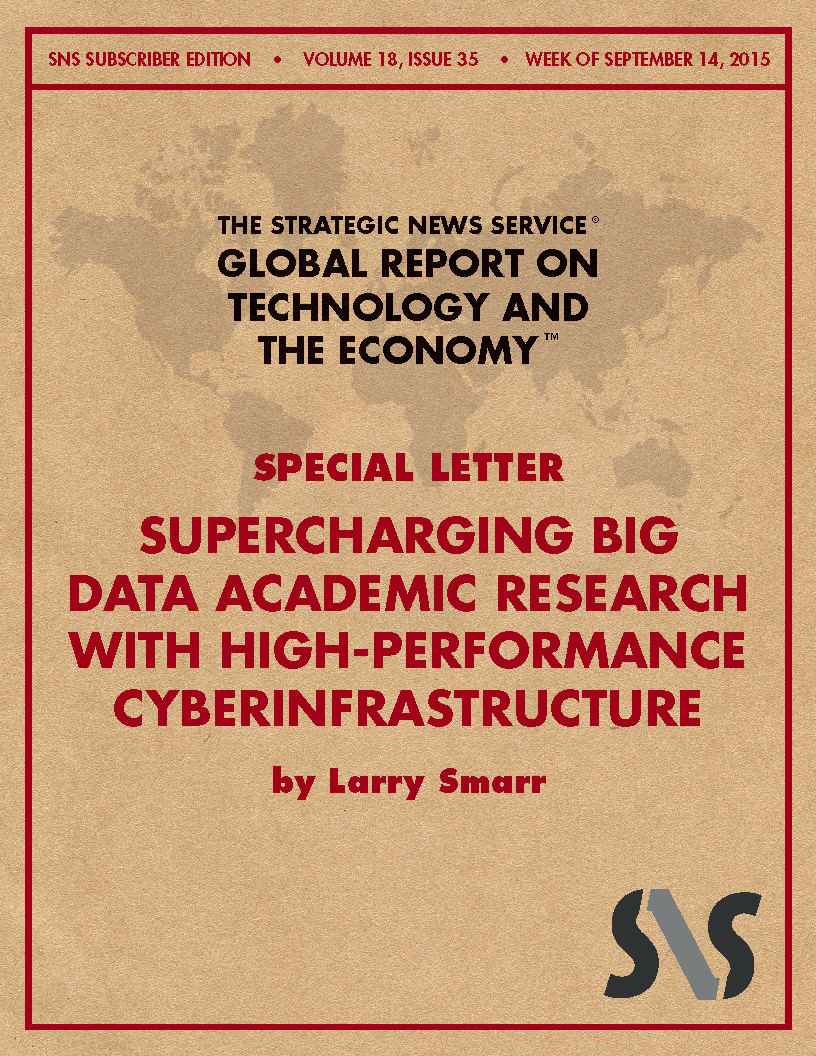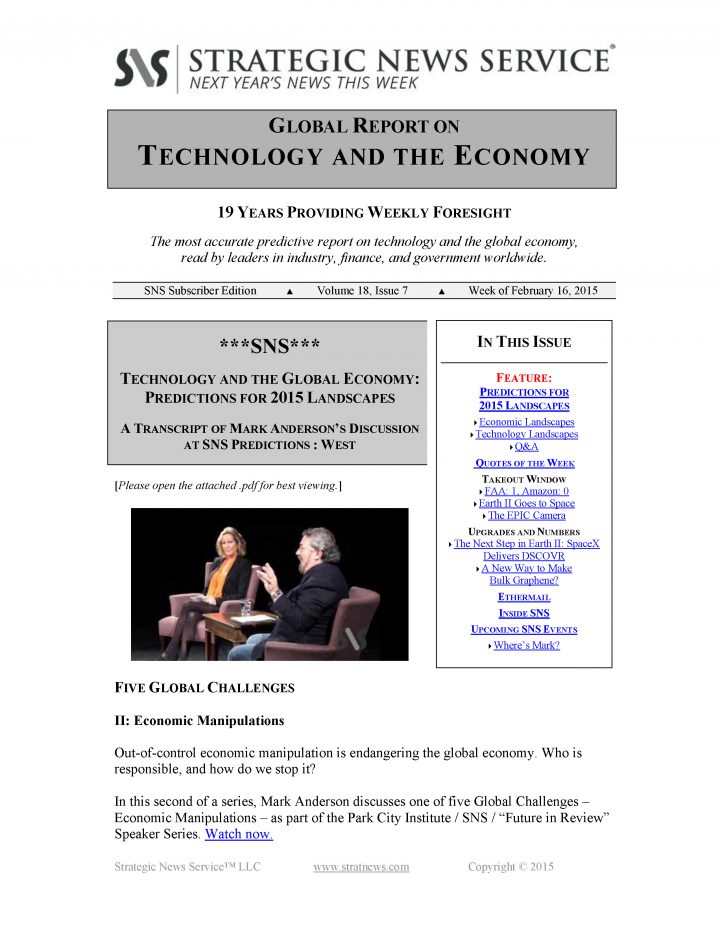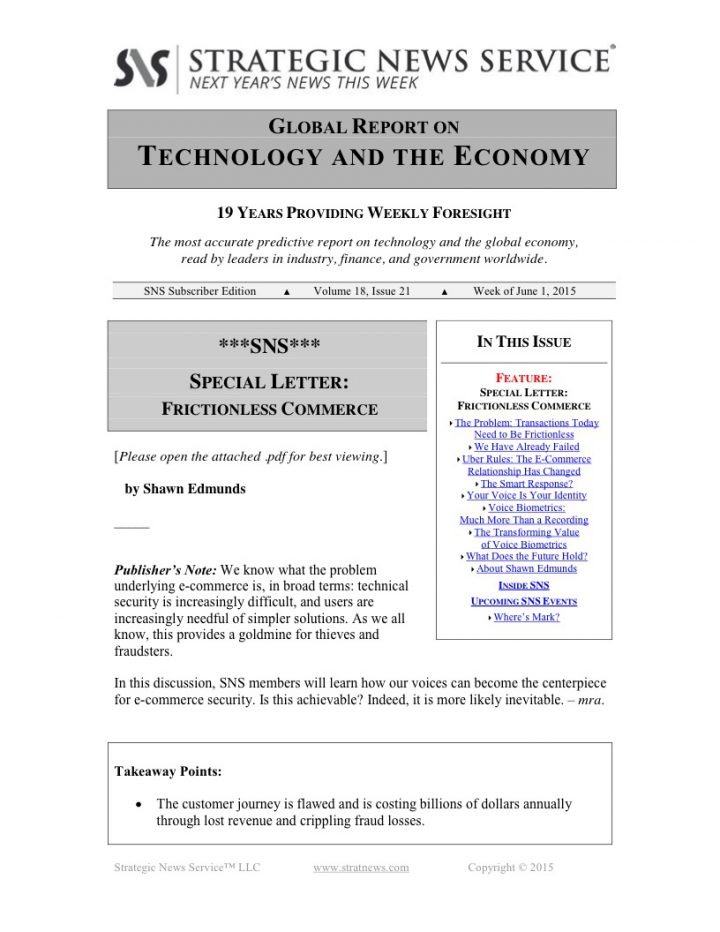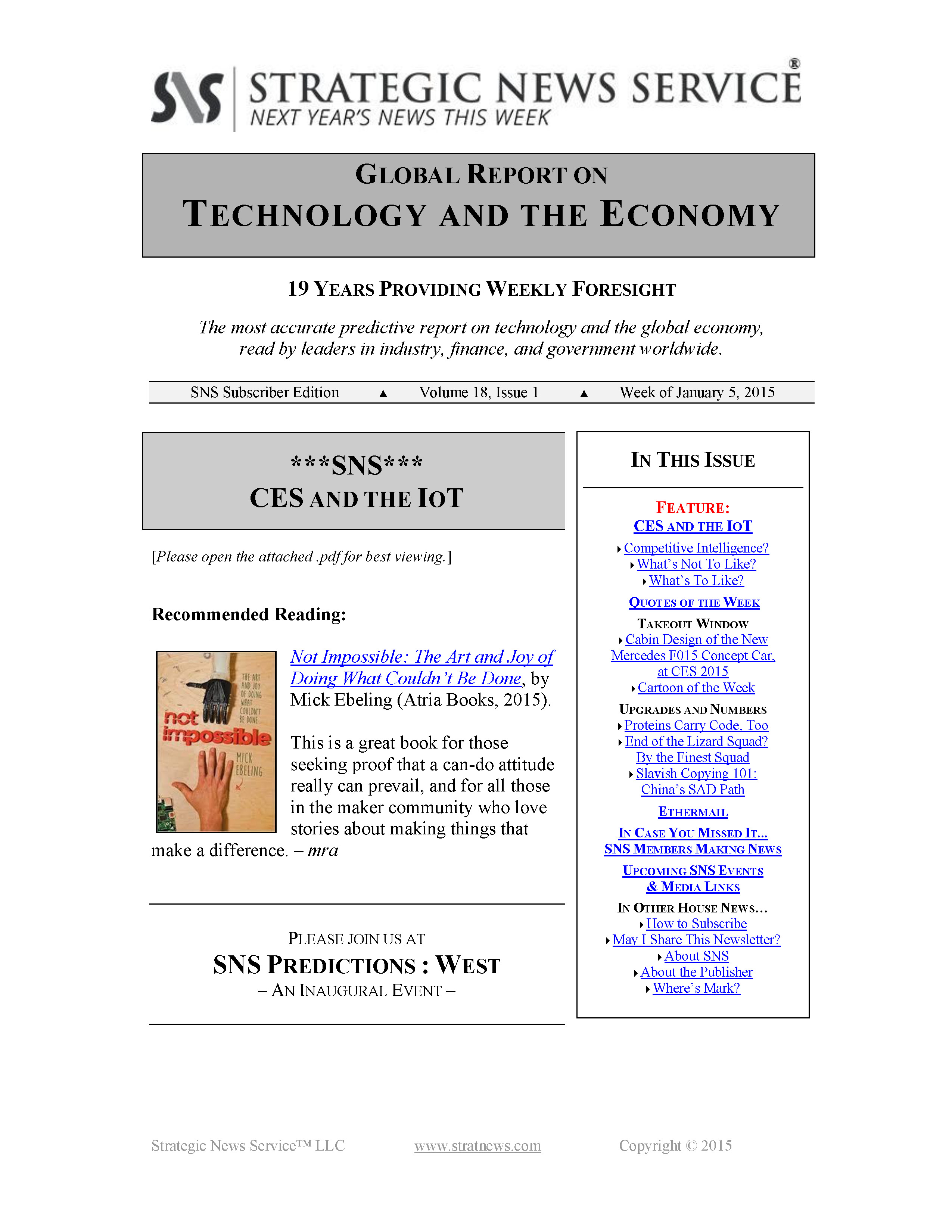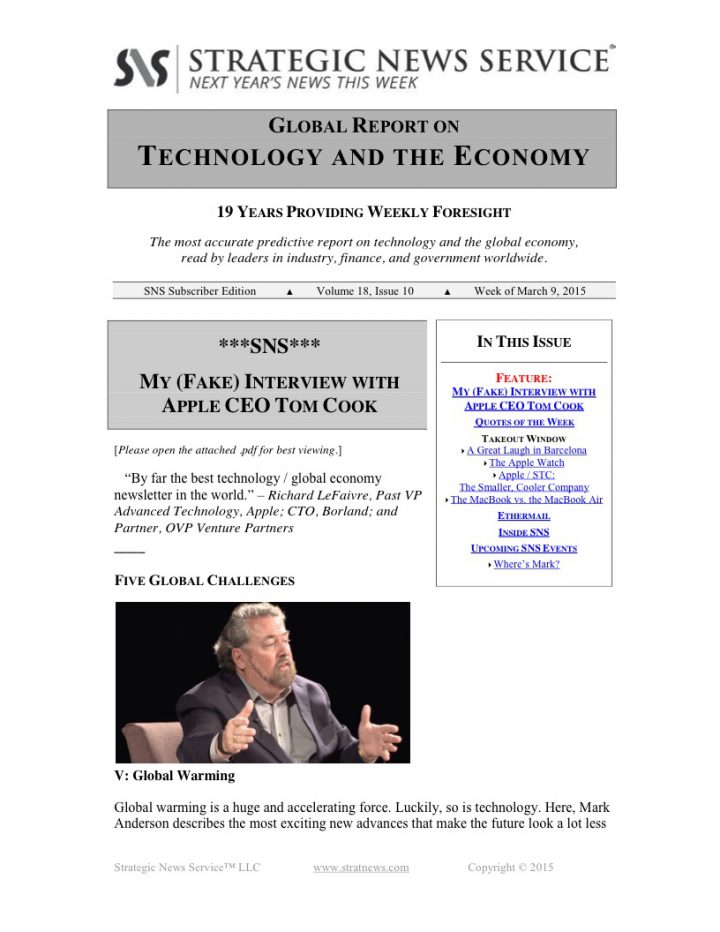SNS Subscriber Edition
Volume 18, Issue 35
Week of September 14, 2015
In This Issue
Feature: Special Letter: Supercharging Big Data Academic Research With High-Performance Cyberinfrastructure
- A Trillionfold Increase in Supercomputer Speed
- A Historic Turning Point in Computing Architectures?
- Brain-Inspired Computing and Pattern Recognition
- Big Data and the Pacific Research Platform
- FiRe 2015: “The Power of Patterns”
- About Larry Smarr
—
Publisher’s Note: In this week’s issue, members will get a view of a completely new computing environment, from SNS Pattern Recognition Processors out to a new secure Net running as a multi-institution backplane across a whole state, at real measured speeds of 100 Gbps. Old hands may think of the first days of ARPANET, and dumb terminals, upgraded to what we’ll all be using perhaps 20 years from now. But it’s all real today.
This also is the first public unveiling of a project Larry Smarr and I envisioned during one of our annual road trip weekends together: the SNS Calit2 Pattern Recognition Laboratory. Yes, there are other PRLs in the world, but almost all of them are focused on image recognition in some way or another. We are going to push the science and technology of PR in unconstrained data environments. That means (it seems likely to me) we will be building machines, software, tools, languages, and practices and procedures that will ultimately reveal not just what’s hidden in an image, but also what remains hidden from us in the world.
Those attending the 13th annual FiRe conference next month will have a chance to see all of this in action, and to meet the players from around the world who are involved in creating the first Pattern Computer, the first PRPs, backed by neural nets with iterative learning, low-energy-consumption asymmetric spiking neurons, and biomimetic languages.
Sounds a bit different from Windows, Android, and PCs, doesn’t it?
Buckle your seat belt and come along for the ride, as Larry Smarr describes where computing is headed in the next few decades, starting now. – mra
SKU: SNS-2015-09-17 - Need Help? Contact Us Leave Feedback
Categories: 2015 Issues, Back Issues
Tag: PDF Download

